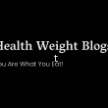
Do you want healthy gums without having to floss? Believe it or not, it is possible! There are several methods that can help you maintain your gum health without the need for flossing. In this blog post, we'll explore some of the best ways to keep your gums healthy without flossing. From diet changes to water irrigation, there are plenty of options available to keep your gums in top shape. Read on to find out more about healthy gums without flossing.
Why flossing is important for healthy gums
Maintaining healthy gums is crucial for maintaining good oral health and overall well-being. However, many people tend to overlook the importance of flossing when it comes to achieving healthy gums. Flossing is a key component of an effective oral hygiene routine because it helps remove plaque and food particles that get stuck between the teeth and gums.
When you don't floss, bacteria can accumulate in the hard-to-reach areas of your mouth, leading to plaque buildup, bad breath, and gum disease. Gum disease, or periodontitis, is a serious condition that can cause tooth loss and bone damage and even increase the risk of other health problems such as heart disease and stroke.
Flossing is one of the best ways to prevent gum disease and maintain healthy gums. By removing plaque and food particles from between your teeth and gums, you can reduce your risk of gum inflammation, bleeding gums, and periodontal disease.
While some people find flossing uncomfortable or time-consuming, there are several alternatives to flossing that can help you achieve healthy gums without flossing. In the next section, we will explore some of these alternatives and their effectiveness.
Alternatives to flossing
Flossing is a crucial part of dental care, but it can be difficult for some people to incorporate into their daily routine. If you're one of those people, don't worry! There are alternatives to flossing that can help you maintain healthy gums.
One alternative is interdental brushes. These small brushes are designed to fit between teeth and can remove plaque and food particles just like floss. They are available in different sizes to fit the spaces between your teeth. Healthy gums without flossing? Interdental brushes are a great option.
Another alternative is a water flosser. These devices use a stream of water to clean between teeth and remove plaque and food particles. They are gentle on the gums and can be an effective alternative to traditional flossing.
Lastly, there are also wooden or rubber picks that can be used to clean between teeth. These are disposable and can be a convenient option when you're on the go.
Remember, while alternatives to flossing can be helpful, they should not replace flossing altogether. Flossing is still the best way to remove plaque and prevent gum disease. Incorporating some of these alternatives into your routine can help improve your overall dental hygiene and maintain healthy gums without flossing.
Brushing techniques for gum health
Maintaining healthy gums without flossing can seem like a daunting task. However, it's not impossible. One way to promote healthy gums is through proper brushing techniques. Here are some tips for brushing your teeth to keep your gums healthy:
1. Use a soft-bristled toothbrush: A soft-bristled toothbrush is gentle on the gums and can prevent irritation that may lead to gum disease.
2. Brush twice a day: Brushing twice a day helps remove plaque and bacteria from your teeth and gums. It's essential to brush in the morning and before bedtime to keep your mouth clean and healthy.
3. Brush in a circular motion: Brushing your teeth in a circular motion is gentle on your gums and helps remove plaque and food particles from your teeth.
4. Angle your brush towards the gum line: Brushing your teeth at a 45-degree angle towards the gum line can help remove plaque and bacteria from your gums. This angle helps to clean under the gum line and along the edges of the gums.
5. Brush for two minutes: It's recommended that you brush your teeth for at least two minutes to ensure that you've removed all the plaque and bacteria from your teeth and gums.
In summary, brushing your teeth with a soft-bristled toothbrush in a circular motion at a 45-degree angle towards the gum line for at least two minutes twice a day is one way to promote Healthy Gums Without Flossing. Keep in mind that proper brushing techniques alone may not be sufficient for gum health. It's still important to maintain regular dental checkups and cleanings.
Mouthwash and gum health
If you're looking for ways to maintain healthy gums without flossing, adding a mouthwash to your oral hygiene routine may be a helpful option. Mouthwash can help remove plaque and prevent gum disease. However, it's important to note that mouthwash alone is not a substitute for flossing.
When choosing a mouthwash for gum health, look for one that contains fluoride and is labeled as an anti-gingivitis or anti-plaque mouthwash. These types of mouthwashes have been clinically proven to reduce the bacteria that cause gum disease and promote healthier gums.
Using mouthwash after brushing and flossing can also be effective in killing remaining bacteria and freshening your breath. However, be sure to use it as directed on the label and don't overdo it. Too much mouthwash can cause dry mouth and irritation of the gums.
Remember that while mouthwash can be a useful addition to your oral hygiene routine, it's not a substitute for flossing. For truly healthy gums without flossing, try combining mouthwash with other methods such as brushing techniques, a healthy diet, and avoiding habits that can harm your gums.
Foods for healthy gums
You may not know this, but the food you eat can also contribute to the health of your gums. Certain foods contain vitamins and minerals that are important for maintaining healthy gum tissue. Here are some foods that you can add to your diet to improve the health of your gums:
1. Citrus Fruits: Citrus fruits such as oranges and grapefruits are rich in vitamin C, which helps fight off gum inflammation and infection. Adding these fruits to your diet can help keep your gums healthy.
2. Leafy Greens: Leafy greens such as spinach and kale are high in vitamin K, which helps strengthen your gums. These greens also contain folic acid, which can reduce gum inflammation.
3. Nuts: Nuts such as almonds and walnuts are packed with nutrients that can benefit your gums. They contain omega-3 fatty acids, which can reduce gum inflammation and fight off bacteria.
4. Milk and dairy products: Milk and dairy products are a great source of calcium, which is important for strong teeth and healthy gums. Cheese, in particular, is known to stimulate saliva production, which can help neutralize harmful bacteria in your mouth.
5. Green Tea: Green tea contains antioxidants that can reduce inflammation and fight off harmful bacteria in your mouth. Drinking green tea regularly can help keep your gums healthy and reduce your risk of gum disease.
Adding these foods to your diet can help improve the health of your gums and reduce your risk of gum disease. However, it's important to remember that a healthy diet should be combined with good oral hygiene practices such as brushing, flossing, and regular dental check-ups.
Habits to avoid for gum health
Taking good care of your gums is an essential part of maintaining your overall oral health. While there are several steps you can take to ensure that your gums remain healthy, there are also certain habits that you should avoid in order to keep your gums in top shape.
1. Smoking: Smoking is one of the leading causes of gum disease and other oral health problems. Tobacco use can irritate your gums, leading to inflammation, infection, and tooth loss.
2. Chewing tobacco: Chewing tobacco is just as harmful as smoking. It can also cause gum disease, lead to tooth decay, and cause other oral health issues.
3. Eating sugary and starchy foods: Sugary and starchy foods can promote the growth of bacteria in your mouth, which can lead to gum disease and other oral health issues.
4. Using your teeth as tools: Your teeth are not designed to be used as tools. Avoid using them to open bottles, rip packages, or do anything else that can damage your teeth and gums.
5. Grinding your teeth: Grinding your teeth can cause damage to your teeth and gums over time. It can lead to gum recession, which can expose the roots of your teeth and increase your risk of developing tooth decay and gum disease.
By avoiding these habits and taking steps to promote good oral hygiene, you can keep your gums healthy and enjoy a beautiful, healthy smile for years to come.
If you want to learn more, click here now...
About the Creator
Franco
Weight loss, Health, and diabetes can be a mental and emotional practice as well as a physical one! I am sharing some of the tips and research that helped me mentally on my journey. Content writer researcher. https://healthweightblogs.com






Comments
There are no comments for this story
Be the first to respond and start the conversation.